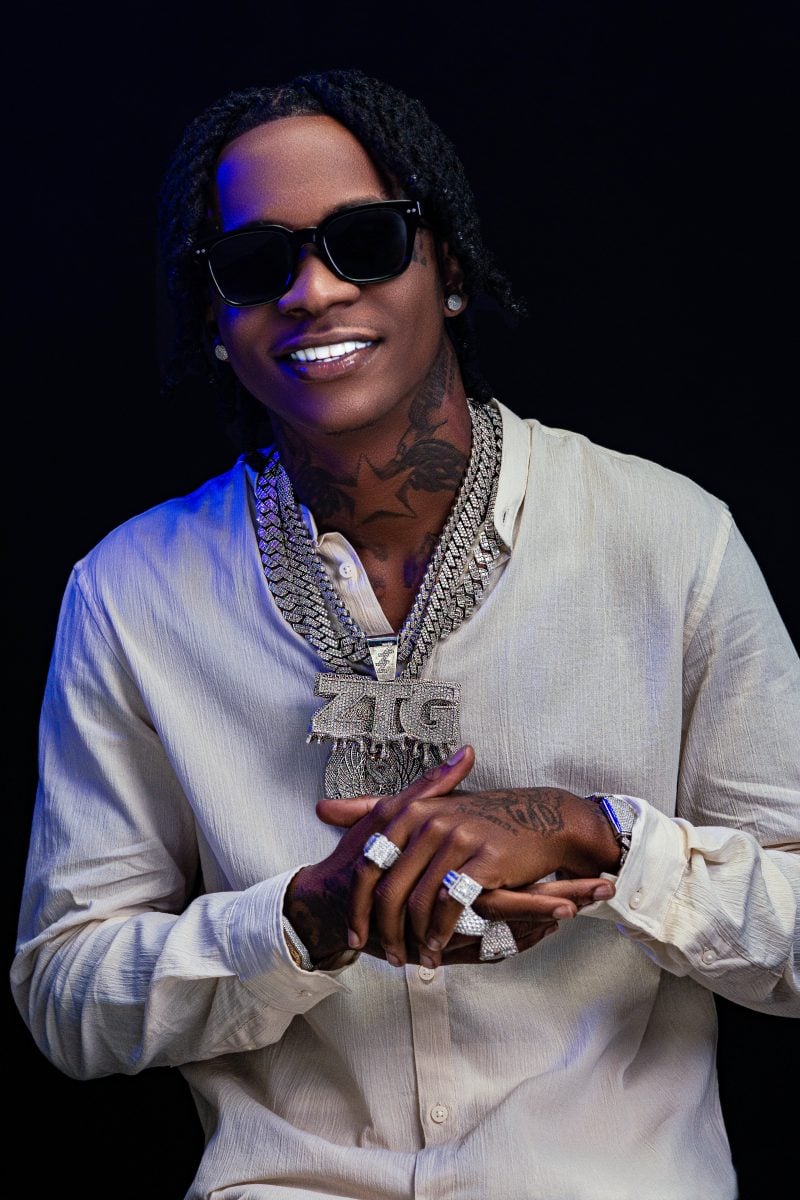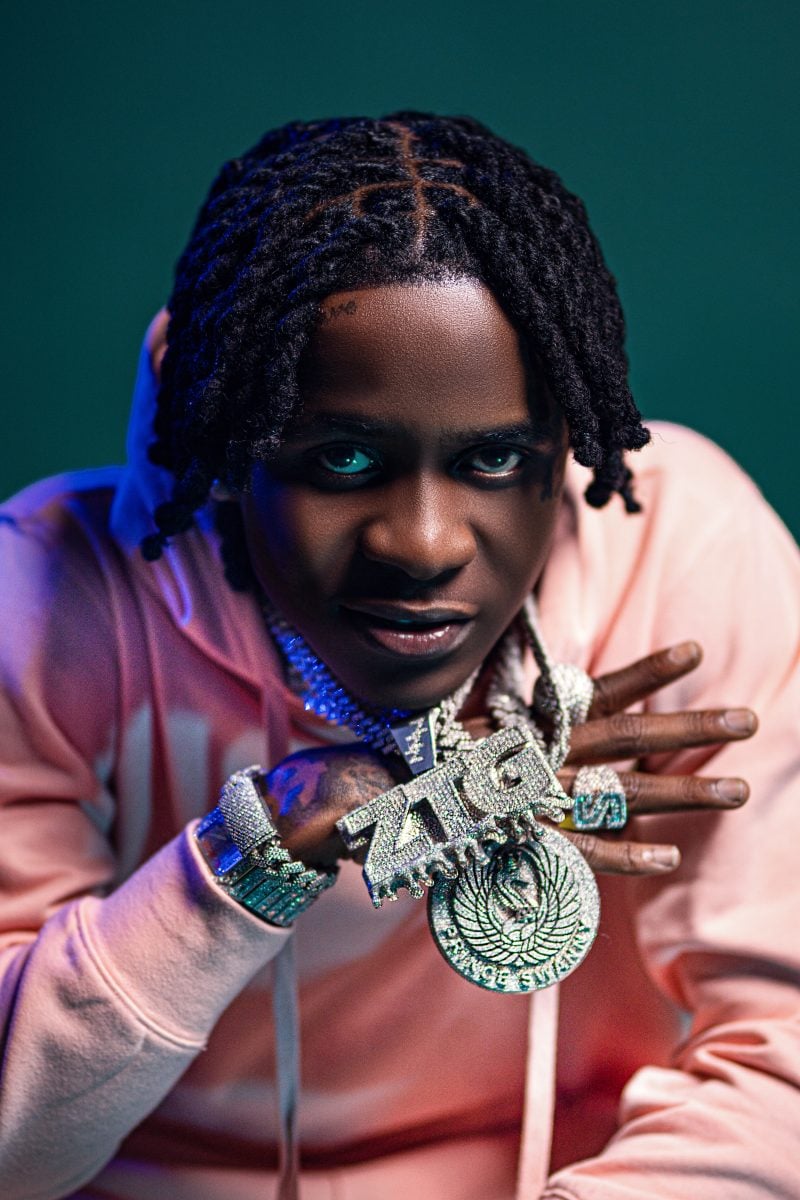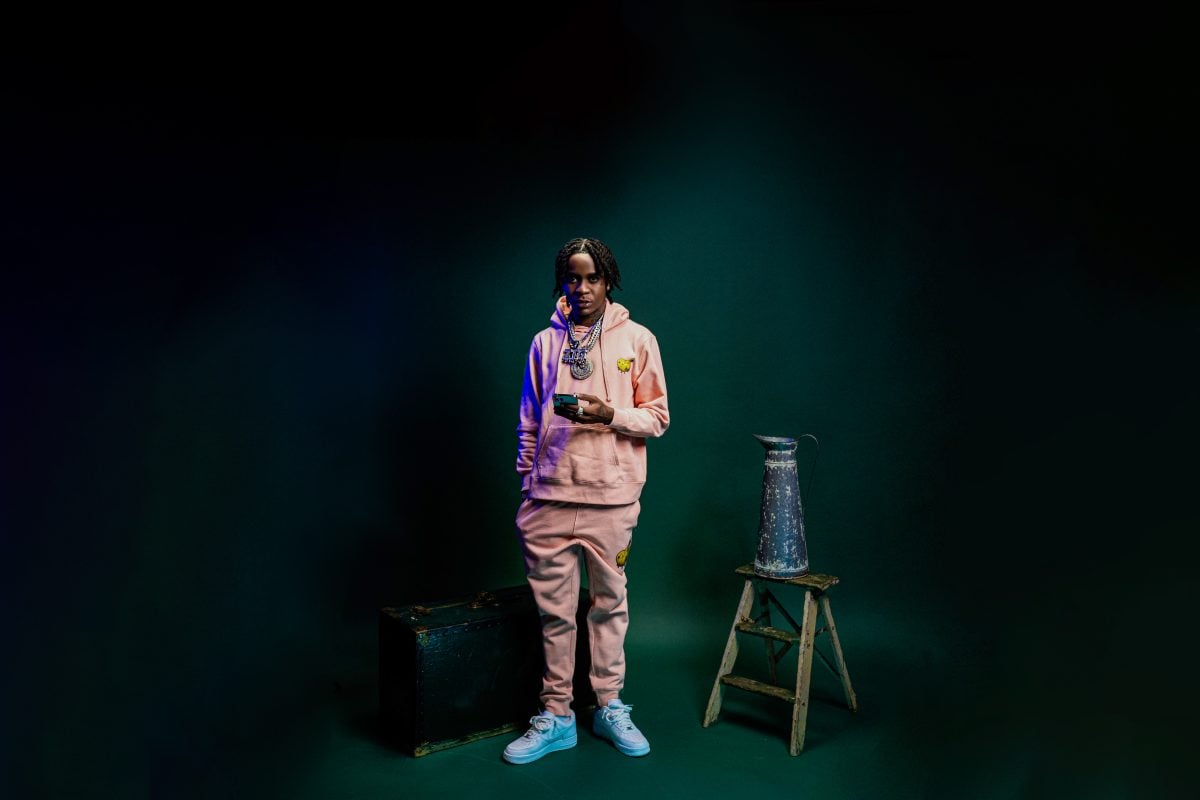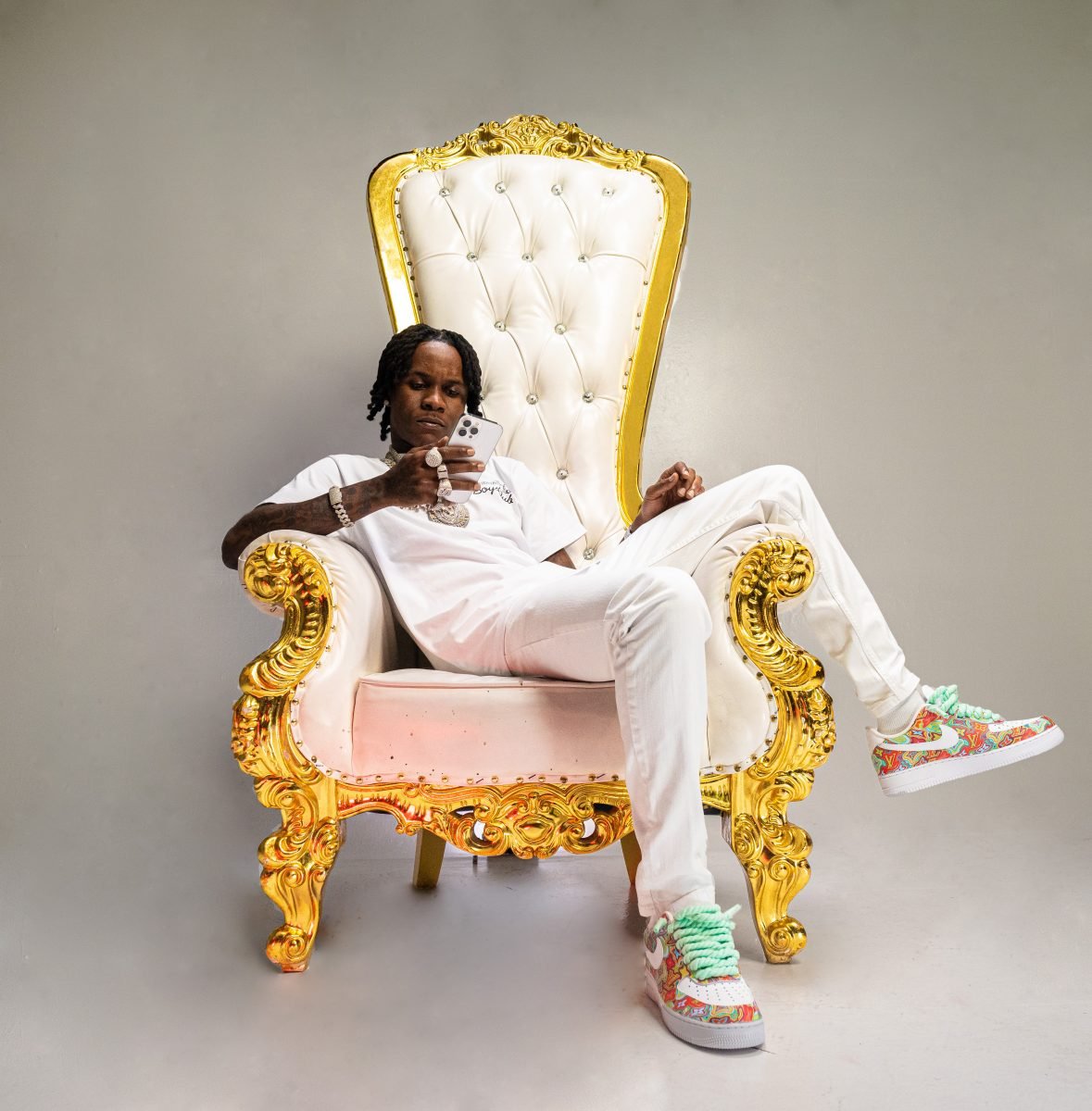Interview: Prince Swanny Gets Real About His Sound And New Album ‘Swanology’

The youth music of Trinidad & Tobago has undergone seismic shifts in recent years, and the Port-of-Spain artist Prince Swanny has been a guiding force in that transition. Taking several cues from modern Dancehall, the “Trinibad” sound carries the aspirations and angst of the nation’s streets through brooding trap beats, aggressive and agile lyricism, and heavy, often pained hooks. The culture favors domination over association, and across his decade-long career, Swanny has plotted his path to the throne.
Swanology, his latest album, weighs the cost of his success. In the first half of the album, he mulls over the danger that looms beyond his newfound wealth; he’s aware that the oversized chains that adorn his neck command respect, but they could also spark violent envy. At times, Swanny’s caution descends into paranoia, and in these moments he’s compelled to remind listeners that he and his associates boast enough firepower to fend off a small army.
While the lyrics may be embellished, the wariness that drives them is genuine. On a recent phone call with DancehallMag, Swanny explained where that feeling comes from: “It’s reality, to be honest. It’s what’s really going on right now. I’ve been through a lot. Certain things made me understand life a little more ‘cause that’s what’s really going on in the streets.”

Across the Caribbean, music that amplifies “what’s really going on in the streets” has tended to fuel nervousness, especially in political circles. In the days leading up to Swanology’s release, criticism and political action against this sort of content flared up. Jamaica’s broadcasting authority issued a sweeping ban on radio content that “glorifies illegal activity,” such as gunplay, scamming, and use of the drug molly.
A few days earlier, Guyana’s Opposition leader Aubrey Norton called Spice and Skillibeng – a frequent collaborator of Prince Swanny’s – “the worst of Dancehall music,” a comment he clarified later by saying his political party will continue to rail against artists who “promote disrespect of women, lawlessness and violence.”
Prince Swanny performed in Guyana with the Dancehall artist Teejay the following weekend.

Speaking on this move to get music pulled from airwaves, Swanny said, “If they’re trying to do that, they should ban certain movies and things on TV. We’re entertainers at the end of the day. We’re here to entertain, so we could entertain the good and the bad, but this is not our life. We don’t wake up and … you know? This is not us. We’re here to entertain so we gotta tap into certain things.”
He continued, “You can’t blame us for what’s going on with the crime rate. But still, the artists need to know what they’re putting out there because a lot of youths are looking up. They need to set a proper example because some of these youths are listening to anything you’re saying. And what you’re saying, that’s what they’re going to do. So you’re trying to teach them the right thing the same way.”
And while the so-called “badman tunes” are a big draw in his catalogue, Prince Swanny has recently been focused on expanding the accessibility of his music.
Swanology, he said, is an attempt to reach, “the kids, the ladies, the elderly, and the smokers.” “I wanted everybody to relate in some way.”
It’s hard to say which tracks the elderly have taken to, but Swanny does make a clear pivot about halfway through the album, dialing back his take-no-prisoners persona to cater to the women tuning in. He slows his flows, softens his hooks, and pours the little faith he has for mankind into his romantic partners.
When he croons lines like, “Pon di WhatsApp we deh like every night / If you want company gyal, we can drive / Pon di Hollywood beach and have a time” on Step by Step , it sounds a world away from the borderline declarations of war on earlier-sequenced songs like Killyz . These closing tracks feature brushes with Afrobeats and R&B, and Swanny broadens his vision of a global sound by enlisting the support of the Jamaican deejay Skillibeng, the French-Martinican singer Kalash, and the British rapper Not3s to explore the different shades of intimacy.

Leaping between styles and catering to different audiences is nothing new for Prince Swanny. Born Taryll Swan, he got his start singing Calypso after a teacher noticed him “going down the wrong road” in primary school and encouraged him to give music a try.
“After that, I entered two or three Calypso competitions and I came in first and second place,” he recalled. “From there, I realised I can do something. So I switched it up and tapped more into the reality of what’s going on in my life.”
The now-25-year-old artist first began recording music in 2013, eventually breaking out in 2018 with the songs Watch Your Friends and Unknown Car. His momentum grew through singles like Dreams, Real Mad Dawgs, and the biggest hit of his career so far, Catch 22.

When asked about what separated him from the other artists coming out of Trinidad & Tobago at the time, Swanny said, “I think it’s because, as a young guy, it’s the way that I move, and certain things that I speak about. A lot of people could relate to it. It’s not like I’m telling a story, it’s like reality. I keep it real all the time. A lot of people respect that. And a lot of people see my growth, like where I came from to now. So it’s like, he’s doing something.”
While Prince Swanny has built a name out of exploring and blurring that line between reality and fiction, others have threatened his career by toying with the same dynamic. Last year, Swanny found himself the subject of an apparent hoax after some Whatsapp users circulated messages which alleged that he was part of a gang plot to destabilise Port-of-Spain. Swanny publicly denied the allegations. The Commissioner of Police said there was no intelligence to support claims of a criminal conspiracy targeting the nation’s capital.
In hindsight, the incident proved to be little more than a speed bump for the fast-rising star. Though his exploits–real and imagined–might spark headlines, Prince Swanny’s main draw has always been his music. Even on the eve of Swanology’s release, he was working on fresh material, having flown out to Jamaica primarily to write and record rather than to celebrate.
At one point during the call, he shared his idea of what young artists should be striving towards. “Basically, you just wanna see how you can make everyone around you happy and successful. Make your mama proud. You wanna wake up with good intentions on your mind,” he said.
Swanology was released on October 14 via ZTEKK Records and Roc Nation’s new indie distribution company, Equity Distribution (EQ).
